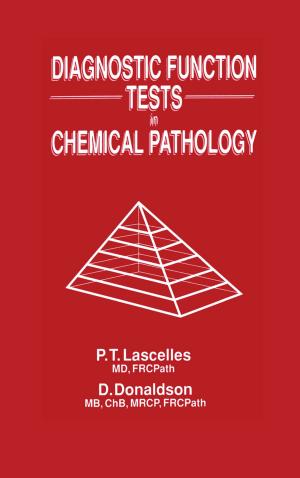The Dynamic Body Tissues
An account of the chalone mechanisms and other influences that control the epidermis and the various body tissues, and of the failure of these mechanisms in cancer
Nonfiction, Health & Well Being, Medical, Medical Science, Anatomy| Author: | W.S. Bullough | ISBN: | 9789401162616 |
| Publisher: | Springer Netherlands | Publication: | December 6, 2012 |
| Imprint: | Springer | Language: | English |
| Author: | W.S. Bullough |
| ISBN: | 9789401162616 |
| Publisher: | Springer Netherlands |
| Publication: | December 6, 2012 |
| Imprint: | Springer |
| Language: | English |
The study of life is the study of tier upon tier of interlocking homeostatic mechanisms, and the main theme of this book concerns that part of the system that ensures cellular and tissue homeostasis and thus maintains tissue mass, tissue structure and tissue function in the adult mammal. The functional existence of any adult tissue depends on the continuing control of the states of differentiation of its cells. Just as in an embryo, where cellular differentiation is initiated and controlled by the genetic responses of the cells to specific messenger molecules, so also throughout the whole of adult life does the genetic activity of the tissue cells continue to be regulated by similarly specific messenger molecules. The process of differentiation does not cease in the embryo but remains as the essential factor which ensures not only the function but also the continuing existence of the adult tissues. Thus the first problem considered here, the methods of control of cell production, cell function and cell death, is discussed in terms of the nature and mode of action of those messenger molecules which, from moment to moment, determine the states of differentiation of the tissue cells. Some of these messenger molecules are synthesized in adjacent tissues while others are synthesized within the responding tissues themselves.
The study of life is the study of tier upon tier of interlocking homeostatic mechanisms, and the main theme of this book concerns that part of the system that ensures cellular and tissue homeostasis and thus maintains tissue mass, tissue structure and tissue function in the adult mammal. The functional existence of any adult tissue depends on the continuing control of the states of differentiation of its cells. Just as in an embryo, where cellular differentiation is initiated and controlled by the genetic responses of the cells to specific messenger molecules, so also throughout the whole of adult life does the genetic activity of the tissue cells continue to be regulated by similarly specific messenger molecules. The process of differentiation does not cease in the embryo but remains as the essential factor which ensures not only the function but also the continuing existence of the adult tissues. Thus the first problem considered here, the methods of control of cell production, cell function and cell death, is discussed in terms of the nature and mode of action of those messenger molecules which, from moment to moment, determine the states of differentiation of the tissue cells. Some of these messenger molecules are synthesized in adjacent tissues while others are synthesized within the responding tissues themselves.















